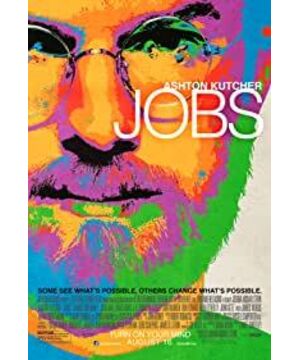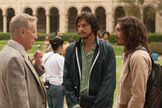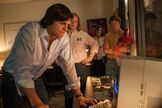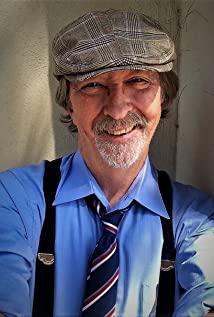The film "Jobs" takes Jobs' life and work trajectory from 1971 to 2000 as a clue, and mainly outlines his entrepreneurial path and Apple's own development during this period. From the establishment of Apple in the garage with his friend Woz, Jobs built his new technology empire step by step, but was later "burned squid" by his own company. Finally, when Apple was in crisis, he chose to return to reform Apple. As soon as the film was released, the plot was questioned, especially after Wozniak, who co-founded Apple with Steve Jobs in 1976, watched the film and pointed out that the film distorted the characters and some facts. The producer responded by claiming that the film was not a documentary and did not intend to record the facts one by one.
Also as a film that tells the story of the pioneers of new technology, "Jobs" is inevitably compared with "The Social Network." Unfortunately, the film did not have the kind of surprise and emotion that "The Social Network" brought us at the beginning, which disappointed many viewers who went to watch the film because of Steve Jobs, and received bad reviews since its release. The reason for this is that apart from the fragmentation of the storytelling-many fragments appear without a sense of thought, and they can't be unsatisfactory in terms of characterization. The leader is portrayed as a complete "tyrant" - impulsive, irritable, simple and crude. It is not to say that the cold-blooded devil side of Steve Jobs should not be reflected, but the complex psychological and personality changes were replaced by a single symbol, so it is obvious that the film does not resonate with the audience at all.
However, Ashton Kutcher's performance is really remarkable. In addition to his resemblance to Steve Jobs, the tall Hollywood actor is also said to be a "fruit fan" and is no stranger to technical things. Whether it is the slight smile on the corners of the mouth or the brilliance in the eyes, the genius and uninhibitedness of the founder are fully displayed. Kutcher's interpretation makes us almost forget the fact that Steve Jobs has left us, as if the screen The figure that jumped up was the boy who was pulling his slippers and decided to drop out of school, as if he was the "perverted president" who was walking in a black sweater and jeans.
In addition, the film's scene selection and photography are worthy of praise, especially the part of Jobs walking in India. The sense of picture fills the entire screen and makes people shine. The soundtrack is also just right, accurately grasping the rhythm of the story. It's also worth noting that the film doesn't address Apple's meteoric rise after Jobs took over the reform. It must have been deliberately arranged by the producers. On the one hand, video recordings and other materials can be seen everywhere during this period, and on the other hand, everyone is relatively familiar with it. After narrating the ups and downs of the early days of success, the film tends to end in Jobs' speech.
"Salute to those crazy, maverick, different thinking guys. Maybe they are crazy in some people's eyes, but they are geniuses in our eyes." The film is not so much a tribute to our genius creation that has passed away. Home Steve Jobs, rather a tribute to all Jobs-style "madmen." And in this era from industrialization to modernization, there are always such a group of pioneers who are unique and have unique vision. In the eyes of ordinary people, they are lunatics, and their future achievements prove that they are "outstanding". As the weather vane of the times, the "madmen" can always keenly capture people's psychological trends. They created a value that has become the belief of many people. The believers worship him and revere him, and then the whole society has no reason not to do so. High song.
They are the "madmen" of the times.
This is an era of "madmen".
View more about Jobs reviews











